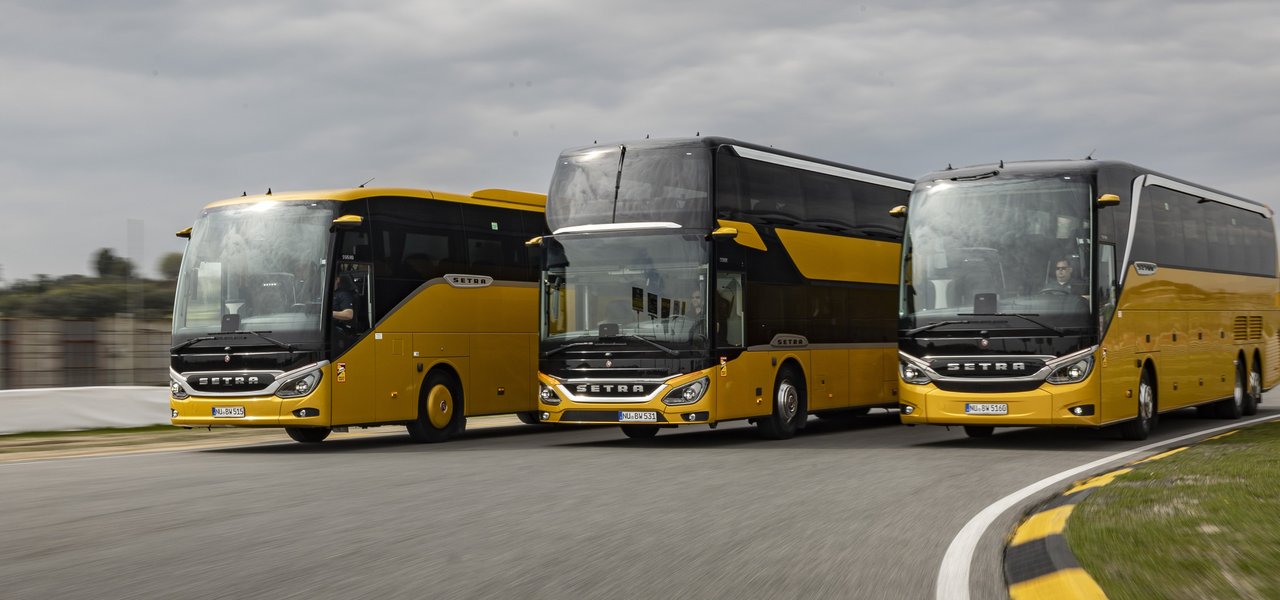Compliance is the basis of our products and our actions. In an increasingly complex environment of laws and regulations, we want to use our Product Compliance Management System (PCMS) to ensure that our technologies and products are put on the road in a legally compliant manner. In this interview, Dr. Andreas Gorbach, Member of the Board of Management of Daimler Truck AG, responsible for Truck Technology, talks about what is behind the term Product Compliance, how we ensure the regulatory conformity of our products and what significance Product Compliance has for Daimler Truck.

Product Compliance at Daimler Truck
Mr. Gorbach, what does the term "Product Compliance" actually mean?
Andreas Gorbach: In a nutshell, it's about the legal and regulatory compliance of our products. In other words, it's about ensuring that we comply with all laws, standards, and specifications beginning right from the product development process – such as in the development of our safety assistance systems to support truck drivers or meeting emissions standards. In addition, social expectations also play an important role, for example, when it comes to advertising promises.
How do we ensure we actually live up to all of these compliance requirements?
Andreas Gorbach: We have developed our own specific system to do so – our Product Compliance Management System (PCMS). Let's take our Active Drive Assist as an example: The system enables partially automated driving. This means it actively supports the driver and can brake, accelerate, and keep the vehicle in its lane independently, while the driver remains fully responsible and must be ready to intervene at any time. But what does that mean exactly? When have we fulfilled the applicable requirements and how can they actually be monitored, e.g., if an accident occurs? Questions like these often have complex answers or are not (yet) clearly regulated or spelled out in laws and norms. In such cases, especially when there is room for interpretation or there are contradictions between regulations, the responsible engineering colleagues can contact our Product Compliance Experts.
How does the process continue then?
Andreas Gorbach: When we develop new products they have to be in line with applicable regulatory requirements and the current state of technology. This is particularly important today, as the transformation to CO2-neutral drives is changing so much, such as CO2 targets and emissions standards. To make the right decisions here as early as possible in product development, we bring together colleagues from different areas of competencies – such as Compliance, Legal and Engineering. After all, technical standards are written by engineers for engineers. At the same time, an engineer cannot make decisions with legal and social implications on his or her own. That's why cross-functional teamwork is essential here.
Let's look ahead: What significance will Product Compliance have for us in the future?
Andreas Gorbach: Product Compliance has been a very high priority for a long time and will remain so, especially when we look at future technologies. Take the example of autonomous driving. As I mentioned earlier: Here we are partly dealing with legal issues for which there are currently no standards and regulations in many markets, for example in most of the NAFTA region.
The task here is to make the best possible decision, taking into account all available information - with regard not only to laws and standards, but also society’s expectations. After all, not everything that is legal is also legitimate. This illustrates the importance of the topic of Product Compliance. It is a core lever for strengthening trust in our company, products, and our decisions.
